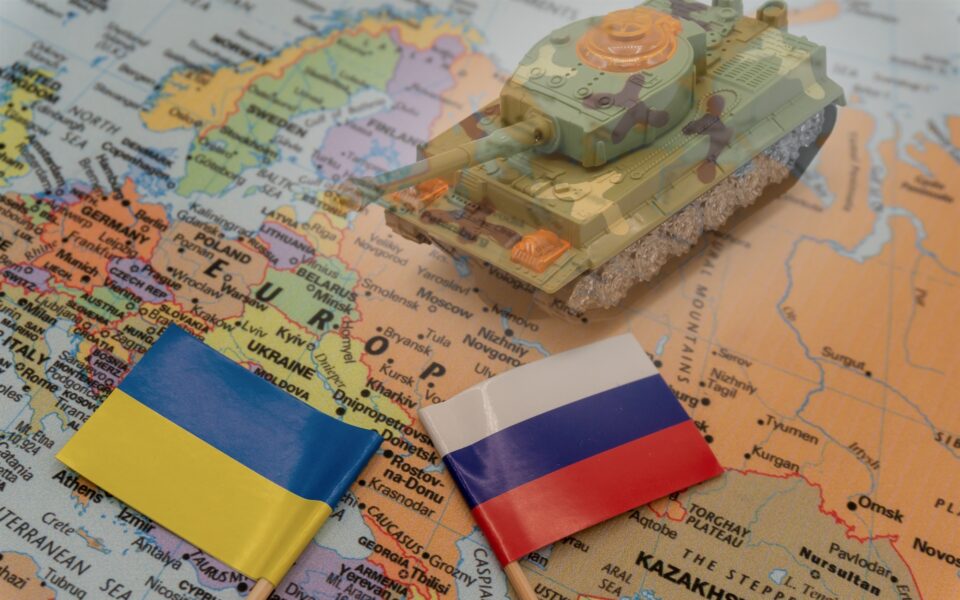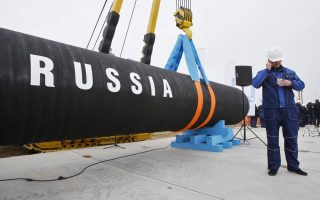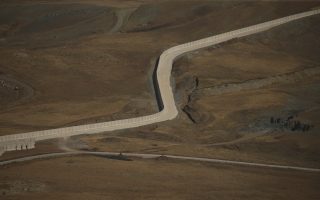The forgotten role of geography

A growing number of books on the importance of geography in the context of international relations have hit the shelves in recent years. Given the role of geography in the Greece-Cyprus-Turkey triangle, the Aegean Sea and its islands in relation to the continental mass of Anatolia, the sea straits (choke points) of the Mediterranean and their importance in the transfer of energy products and international trade (as underscored by the recent Suez crisis and President Recep Tayyip Erdogan’s pharaonic Istanbul Canal plan), it is easy to see why the debate is of great interest to Greece.
No brief review, necessary due to the limited space, can do justice to the following important publications on the subject. But at least it can provide a useful overview of the broader debate about the “return of geography.”
In his “Prisoners of Geography: Ten Maps That Explain Everything About the World” (Elliott & Thompson – UK, Scribner – US), Tim Marshall attempts to forecast the geopolitical future of 10 crucial regions by examining their geography-specific characteristics. In his attempt to answer the question whether nations can free themselves from the constraints of geography, the author claims that man has been, and still is, a Homo geographicus and that geography has always been a type of prison – a prison that determines what a nation is or can be – and at the same time a prison from which the world’s leaders have often tried to escape. Marshall believes that big and small country leaders are held hostage to the natural environment which offers them fewer choices and smaller room for maneuver than what is generally thought.
Marshall admits that geography may not be the most decisive factor in international relations, but he certainly thinks it is the most underrated. He accepts that technology can bend the bars of this geography prison cell, but he questions whether it can actually break them.
Developments in Ukraine make the book’s chapter on Russia particularly interesting. Marshall, among other things, refers to Russian history and the invasions on its western border, the prospect of China eventually controlling parts of Siberia as a result of Russia’s declining birth rate and Chinese migration, its lack of access to warm-water ports with direct access to the oceans (Vladivostok and Murmansk freeze for several months each year) and, hence, the importance of Sevastopol, the categorization of former Soviet republics into pro-Russian, neutral and pro-Western, and the importance of Moldova and Transnistria.
The writer also refers to Russia’s ambitions in Antartica, Europe’s energy dependence on Russian hydrocarbons, and Russia’s high dependence on energy exports and the doctrine of “Novorossiya,” or “New Russia.” He notes: “A pro-Western Ukraine with ambitions to join the two great Western alliances, and which threw into doubt Russia’s access to its Black Sea port? A Ukraine that one day might even host a NATO naval base? That could not stand.”
Marshall’s follow-up book, “The Power of Geography: Ten Maps that Reveal the Future of Our World” (Elliott & Thompson), runs through the histories of nine countries and outer space. The chapters on Greece and Turkey are of particular interest to the Greek reader. As far as Turkey is concerned, the author underscores the importance of the Turkish straits, there is mention of Erdogan’s regional ambitions and the Blue Homeland doctrine, and the special relationship between Turkey and Russia (“frenemies”). As for Greece, he refers to the argument, originally expressed by Thucydides, that the mountains to the north of the Greek mainland make trade in that direction arduous, but at the same time offer protection from land-based threats. However, in order to feel secure and to prosper, Greece must possess maritime power in the Aegean and the Eastern Mediterranean.
Marshall believes that big and small country leaders are held hostage to the natural environment which offers them fewer choices and smaller room for maneuver than what is generally thought
George Prevelakis, writer of “The Wooden Walls: Geopolitics of the Greek Networks” (Economia), deems that the “crucial crossroads controlled by Greece leave little room for freedom. Already since the 19th century, the sea which surrounds all Greek territory, as well as the country’s limited continental strategic depth, also determines its alliances. Greece belongs to the West, in particular its coastal area,” he says.
Robert Kaplan, author of “The Revenge of Geography: What the Map Tells Us About Coming Conflicts and the Battle Against Fate” (Random House), deems that the role of geography in understanding international conflict as well as the future prospects and decisions of continents and states is more important than generally understood. He says that geography, for example, explains why Africa is so poor (the Sahara Desert, high proportion of landlocked states, very few natural ports, absence of navigable rivers leading into the interior, tropical forests) or why China is more important to Brazil (proximity to sea lines of communications, or SLOCs, climate geographical location/Brazil’s isolation). Kaplan, too, believes that geographical shortcomings can be mitigated by technological developments and deems that satellite TV and social media empowered protesting citizens to look beyond physical borders; however, the revolt in each country was affected by its history and geography.
“Geography in International Studies: A Geographical Approach of the Contemporary International Community” (Sideris), edited by Grigoris Tsaltas, is accompanied by 118 maps, 49 tables, 25 graphs and nine photographs. It sets off from the perfectly reasonable argument that the “specialized subjects treated by international and European studies require good knowledge of both politics and a geophysical analysis of the wider earth,” and then proceeds with a useful interdisciplinary analysis.
Michel Foucher’s “The Battle of Maps,” which has an introduction by Prevelakis, aims to describe the geopolitical plans, visions and objectives of the various agents in a world under full transformation. The third part of the book, which refers to the established powers, rising powers and centers of power, is particularly interesting. The epilogue focuses on Greece and the world, with interesting references to merchant shipping, the diaspora and the patriarchate.
In “The Wooden Walls,” Prevelakis expresses his belief that the 21st century will be the century of the sea. “Having largely exhausted the exploration and exploitation of continental potential, humanity is now turning to the seas and oceans.” The author makes a very interesting point in locating Greece at “the European end of the huge network of sea and land roads that is being built by China.” The author raises a number of important questions, such as: Will this country be limited to an economic role? Will it leave its huge investments, its vital commercial interests unprotected? How will its strategy be connected to the grid of geopolitical and geostrategic structures in Greece’s broader region?
In conclusion, due to the shift to a “regional globalization,” with the reduction of dependence on critical goods from long supply chains as a result of the Covid-19 pandemic and other developments, borders are regaining at least some of their former importance in various parts of the world. It’s time we took a fresh look at the strategic atlases and drew the necessary lessons. A traditional naval power such as Greece of the “wooden walls” is bound to continue to play a central role in the Aegean and Eastern Mediterranean region. Achieving this goal is in the interest of its survival and Greece needs to utilize a number of tools and capabilities, such as its giant stake in the field of merchant shipping, its navy and coast guard, which certainly need reinforcement (by utilizing new technologies and the rapid development of an Aegean surveillance system), a sound defense industry, membership of the EU (the bloc must finally develop a naval strategy), and of NATO, as well as of its regional alliances – all that in the context of a national security strategy which is near completion.
Thanos Dokos has a PhD in international and strategic studies from the University of Cambridge.





